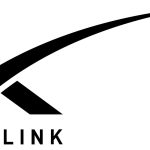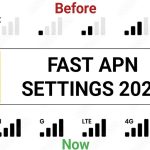
How Starlink is transforming internet access in Nigeria. I Step into Lagos bustling computer village where a new star is stealing the spotlight. The Starlink kit. These sleek white satellite dishes with their plug and plays aren’t just another tech gadget. They’re a symbol of a digital revolution sweeping Nigeria. In a country where traditional internet has often been spotty or downright unreliable, Starlink’s entrance marks a bold new chapter.
Nigeria officially welcomed Starlink in January 2023 and two years down the line, it’s already racing ahead to become the country’s second largest internet provider, just behind Lego space. With more than 65,500 users recorded at the end of last year’s third quarter, this satellite internet service is climbing fast with projections suggesting it’ll be Nigeria’s number one by mid 2026.
What’s driving this boom? Simple. Nigerians crave reliable, high-speed internet. The local telecom providers, not so much. They’re plagued with frequent outages, slow speeds, and weak coverage, especially in rural areas where infrastructures are barely present. That gap in quality leaves space for Starink to swoop in with a solution that actually works.
Starlink’s investment in Nigeria’s digital infrastructure is clear. a base station in Lagos and plans for others in Abuja and Port Harcourt mean the company can deliver low latency connectivity across the country. High-speed dependable internet becomes a reality for many transforming everyday life and business. But their success has shaken up the local scene. When Starlink raised subscription prices last October, some local providers cried foul, accusing regulators of unfair treatment.
Yet, despite some regulatory hiccups, Nigeria’s authorities have been generally supportive, issuing licenses and landing rights to dozens of satellite service providers, foreign and local alike. The result, the telecom landscape is shifting. Notably, major players like Spectranet and Tazidi are losing ground. Meanwhile, mobile giants like MTN, Airtel, and Globe dominate the scene, serving hundreds of millions. But the emerging satellite option threatens to tip the scales.
Industry insiders point out that local companies face harsh realities, hefty spectrum costs, multiple taxes, complex permits, and infrastructure challenges. Unlike Starlink, which simply deploys satellite dishes without the need for extensive local infrastructure, homegrown providers wrestle with building capacity and contending with local bureaucracies. Some experts see Starlink’s growth as a sign of a tough operating climate for local firms rather than a failure on their part.
As Teotope Osman from Tazidi puts it, the environment involves multi-layered taxes, regulations, rising costs, things that make local operations tough. Still, for the everyday Nigerian, the tangible benefits of reliable internet outweigh the industry’s troubles. Alimide Lewis, a Lagos tech worker, shares, “Since we got Starlink, I don’t worry about constant blackouts or slow connections anymore. It just works. Starlink Smart isn’t stopping.
Beyond sales direct from its website, the company is teaming up with Jumia, Africa’s largest e-commerce platform, to reach more customers. By late 2024, its dishes are lighting up homes in Lagos, Abuja, and Port Harcourt, sparking a lively secondary market of importers and resellers betting on the high demand. But with all this rapid expansion come concerns, particularly around national security. Experts worry about a foreign company controlling such a vital communication backbone.
While Nigeria’s government and military keep their distance, preferring to use local or other satellite services to safeguard sensitive data, the debate about foreign influence and strategic independence looms large. As Open Skies policies continue to welcome foreign companies, local providers face a pivotal choice, adapt to this new reality, or risk being left behind. Some operators like Tazidi are already adding fiber options to their wireless services trying to stay competitive. Others might consider mergers or exit strategies altogether.
In this game of digital dominance, one thing’s clear. Starlinks ascent signals a new era for Nigeria and Africa where reliance on reliable satellite internet becomes the new norm and local providers must decide how to navigate this changing landscape.
On my other blog post, I wrote about HOW YOU CAN BROWSE THE INTERNET FOR FREE
For those finding it difficult to read, Below is an embedded Video of the same article




